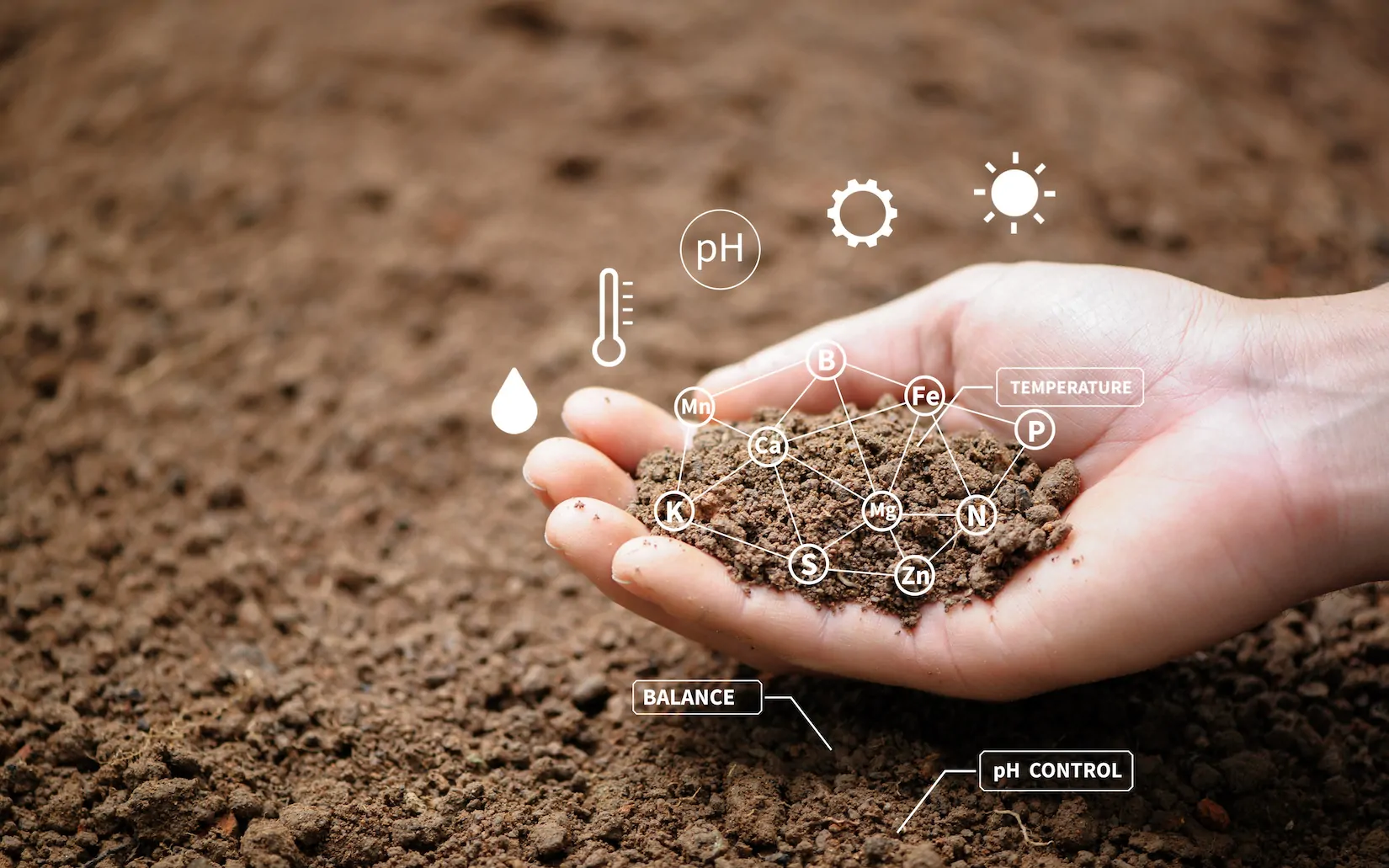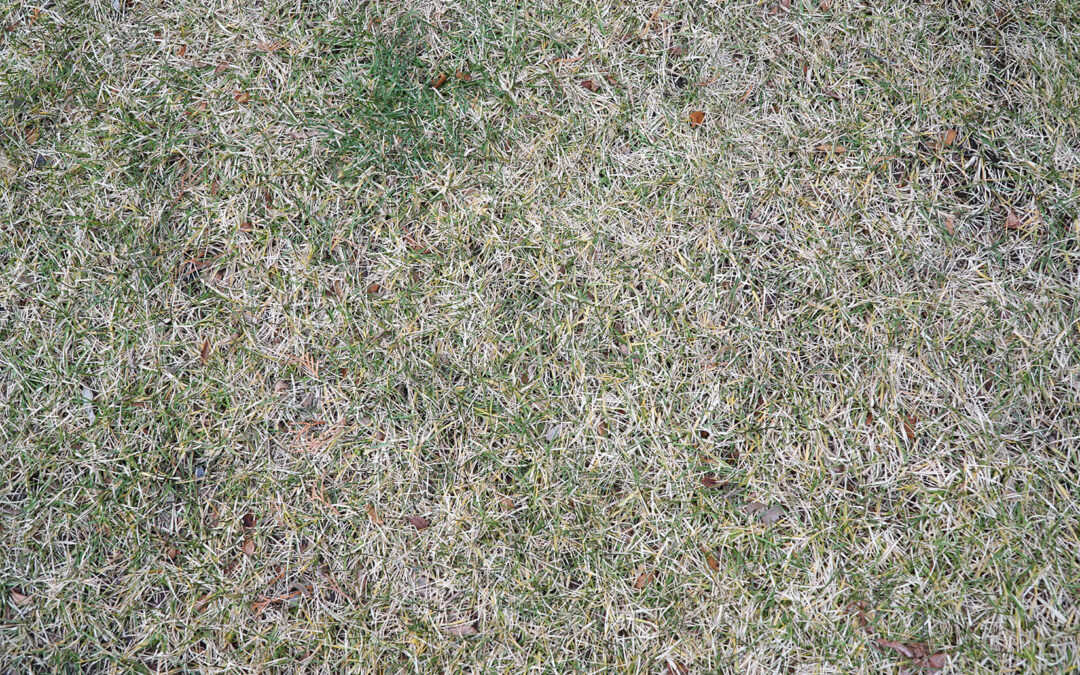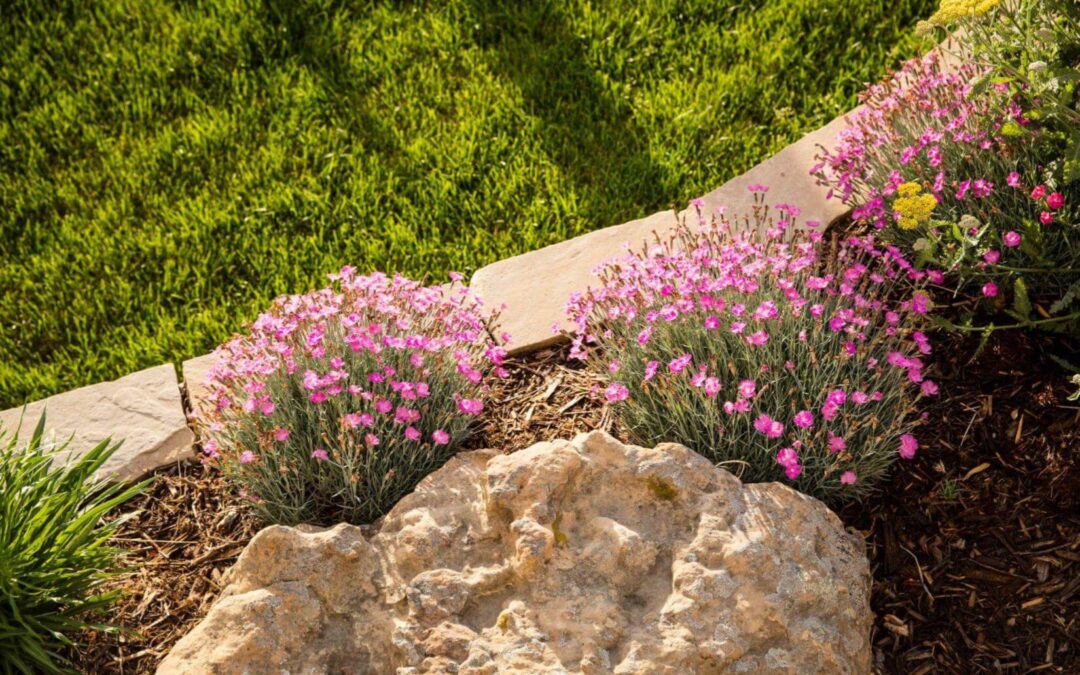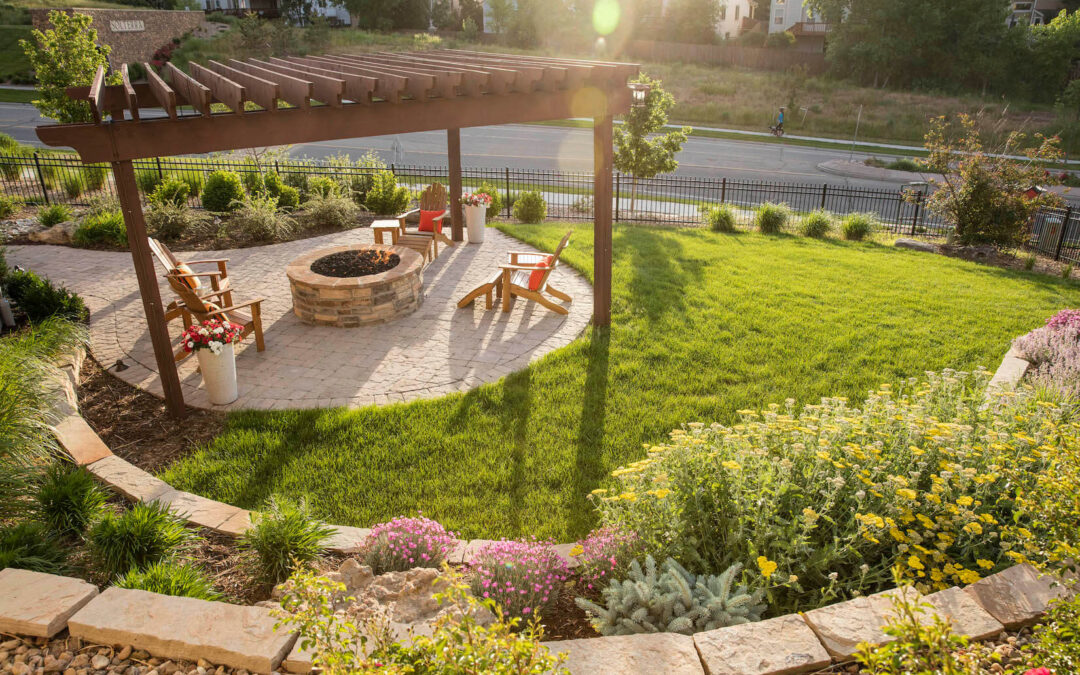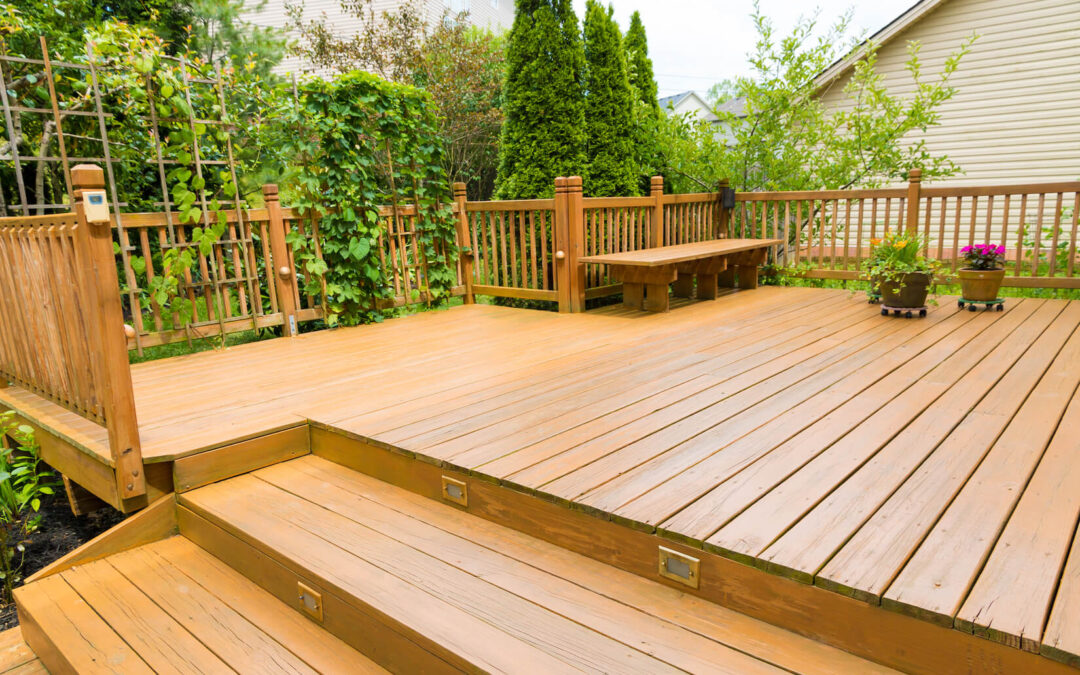Summer in the Denver Metro is a season of vibrant gardens and flourishing landscapes. However, the intense sun, fluctuating temperatures, and occasional dry spells can make it a challenging time for plants to thrive. The secret to a successful summer landscape lies in the health of your soil. Healthy soil is the foundation that supports plant resilience, water retention, and overall garden vitality, especially in Colorado’s unique climate. Continue on to learn more about soil health, its impact on landscapes, and how you can improve the soil quality of your landscape.
Understanding Soil Health
Soil health comprises the soil’s physical structure, organic matter content, and the biological activity within it. In Denver’s semi-arid climate, maintaining healthy soil is crucial for sustainable landscaping.
- Organic Matter: Organic matter, such as decomposed plant material and compost, is essential for nutrient provision and moisture retention. In Colorado, where summer temperatures can soar, organic matter helps your soil retain the moisture your plants need to survive and thrive.
- Soil Structure: The structure of your soil, whether it’s loose and crumbly or compacted and hard, directly affects root growth and oxygen exchange. Well-structured soil allows roots to penetrate deeply, accessing nutrients and water, which is vital during the dry spells common in Denver summers.
- Microbial Activity: Healthy soil is teeming with beneficial microorganisms that break down organic matter and
protect plants from diseases. In Colorado’s climate, where plants are often under stress from heat and drought, these microorganisms play a necessary role in maintaining plant health.
Why Soil Health is Crucial in Summer
Water Retention and Moisture Management
Denver’s summer heat increases evaporation, making moisture-retentive soil essential. Soils rich in organic matter, such as those enhanced with compost, retain moisture better, reducing the need for constant watering. This is particularly important in Colorado, where water conservation is a priority.
Nutrient Availability During Peak Growth Season
Your garden is at its most active during summer when plants grow rapidly and demand a steady supply of nutrients. The quality of your soil determines how well these nutrients are available to your plants.
Temperature Regulation and Root Health
Good soil acts as an insulator, regulating the temperature around plant roots. This is especially important in climates with high daytime temperatures and surprisingly cool nights. Healthy soil helps protect roots from the stress of these temperature fluctuations, ensuring better growth and resilience.
Soil Quality in Different Climates: Focus on Denver
Soil Health in Denver’s Semi-Arid Climate
Denver’s semi-arid climate presents unique challenges for maintaining soil health. The city receives an average of 14-15 inches of rain annually, with much of that coming in short, intense bursts. This means that soil must be able to retain moisture efficiently while also allowing for proper drainage during heavy rains.
- Drainage Needs: Proper drainage is crucial to prevent waterlogging and root rot, especially during the occasional summer storms. However, the soil also needs to hold onto moisture between these rain events, which is why organic matter is so important.
- Managing Compaction: Soil compaction is a common issue in Denver’s clay-rich soils. Compacted soil prevents roots from growing deep and accessing nutrients and water. Regularly adding organic matter, like compost or leaf mold, can help maintain loose, well-aerated soil.
How to Improve and Maintain Soil Health
Purchasing High-Quality Soil in Denver
- Where to Buy: Local garden centers offer soil blends tailored to Denver’s unique climate. These centers provide high-quality topsoil, compost, and soil amendments that can significantly improve your landscape’s health.
- Bulk vs. Bagged Soil: For larger landscaping projects, consider purchasing bulk soil from a landscape supply store. If you’re working on smaller garden beds or container plants, bagged soil from stores like Home Depot or Lowe’s may be more convenient.
DIY Solutions for Soil Improvement
- Composting: Start a compost pile using kitchen scraps, yard waste, and leaves in your backyard. Over time, this compost can be mixed into your soil to enhance its nutrient content and moisture retention. In Denver’s dry climate, composting is an excellent way to recycle organic material and enrich your soil.
- Leaf Mold and Mulch: Collect fallen leaves in the fall and let them decompose to create leaf mold, a fantastic soil conditioner that improves structure and water retention. Additionally, applying a layer of organic mulch, such as wood chips or straw, on top of your soil can help retain moisture during the hot summer months.
- Soil Amendments: In Denver, adding peat moss or coconut coir to your soil can improve its ability to retain moisture, while perlite or sand can enhance drainage. These amendments are particularly useful in Denver’s clay-heavy soils, which tend to be compact and poorly drained.
Recognizing Healthy Soil
Soil Color and What it Indicates
- Dark Soil: In Denver, dark soil is usually a sign of high organic content and fertility. This type of soil is ideal for most plants, as it indicates a good balance of nutrients and moisture retention.
- Reddish or Yellowish Soil: These colors often indicate soils rich in iron oxides, which are common in Colorado. While reddish soil is typically well-drained, it may be more acidic and less fertile, requiring amendments to improve its quality.
- Gray or Bluish Soil: If you encounter gray or bluish soil, this may indicate poor drainage or waterlogged conditions. While uncommon in this region, it’s still possible in low-lying areas or where water tends to collect.
Simple Soil Tests
Performing basic soil tests can help you assess the health of your soil. For example, you can test for soil texture by rubbing it between your fingers — if it feels gritty, it may have too much sand, while a sticky feel indicates too much clay. Testing soil pH levels is also important, as Colorado soils tend to be more alkaline, which can affect nutrient availability.
Trust C&H Landscaping for Expert Soil Care
Maintaining healthy soil is essential for a vibrant and resilient summer landscape in Denver, Colorado. C&H Landscaping offers expert landscaping services to help you achieve the best possible results. Contact us today to get started on improving your soil.
At C&H Landscaping, our mission is to transform everyday outdoor spaces into something extraordinary with creative designs and top-notch craftsmanship. Expert Denver landscaping services from custom design to professional installation. We offer tailored solutions that enhance curb appeal, increase property value, and bring your vision to life.

